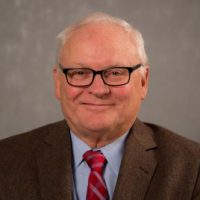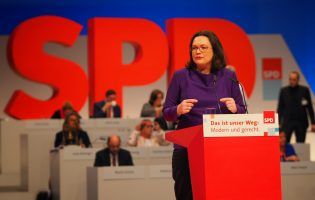
The End of a Not-So-Grand Coalition
The abrupt resignation of Andrea Nahles as chair of the Social Democratic Party (SPD) is another sign that the Grand Coalition government is a zombie, still walking but otherwise quite …
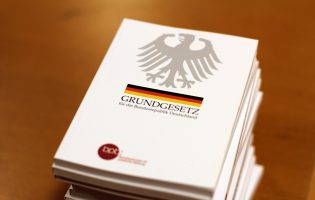
The Past Shapes the Future: The German Constitution at 70
The Federal Republic of Germany celebrates its 70th birthday this year. Much has changed since 1949. Today, the FRG encompasses all of Germany and not just the West, as it …
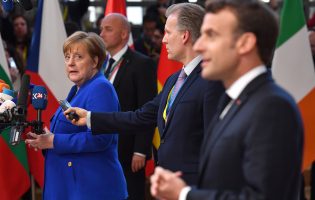
Germany: Hegemon or Free Rider?
Germany has been the most pro-European of all the big players within the EU. Europe’s largest country in terms of population and economic weight, Germany has always been reluctant to …
70 Years of German-American Partnership
AGI Project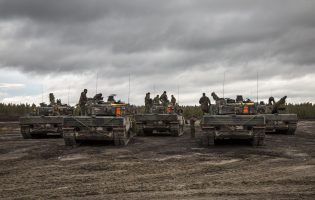
A Germany Alone?
Those trying to hold the transatlantic relationship together now not only have to contend with the tweets and erratic policies emanating from the White House, but with the actions and …
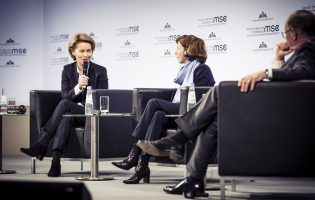
The German Strategic Debate Gets Serious
As the annual Munich Security conference convenes this weekend, the debate on how Germany and Europe should respond to the Trump administration’s positions on NATO and the European Union (EU) …
Judy Asks: Is NATO Deterrence a Paper Tiger?
Far from it. Deterrence rests on risk calculation and doubt. The costs of challenging the deterrent have to be just high enough to discourage risk taking. While Putin was surprised …

Does Germany Need a Plan B?
Thomas Bagger is one of the most thoughtful diplomats of his generation. Currently the Director of Foreign Policy in the Office of the Federal President, he has previously served as …
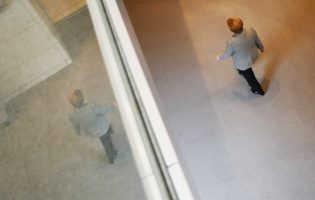
What We Learned about German Politics In 2018 and What It Means for 2019
2018 was a chaotic and transforming year in German politics. It marked the beginning of the end of the Merkel era’s thirteen-year run. The graphic below, published in the Politbarometer …
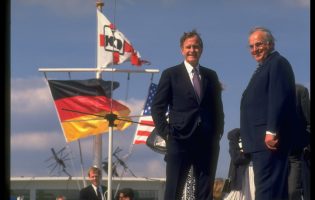
Remembering George H. W. Bush and Germany: A True Partner in Leadership
The death of former president George H. W. Bush will be mourned in Germany as well as in his home country. He was, along with Harry Truman, the most consequential …

Berlin Is Not Bonn—But Also Not Weimar
Today marks the end of a political era with Angela Merkel’s announcement not to seek reelection as party chair of the Christian Democrats in December. In the influential 1956 book …

Germany’s Charlottesville Moment
The protests and violence that took place last week in Chemnitz have brought home the depths of the western revolt against the liberal order which has been the norm in …



